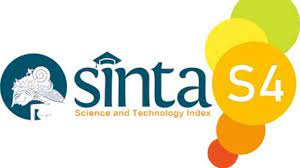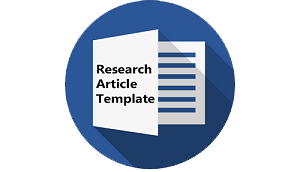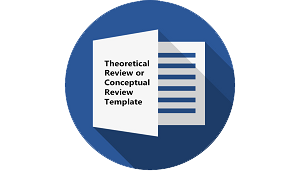Formative Assessment Practices in Online Learning for Assessing Students’ Writing Competence
DOI:
https://doi.org/10.30957/ijoltl.v7i2.688Keywords:
formative assessment, writing competence, online learningAbstract
Writing is considered as one of the essential language competences which should be mastered by the students because it is highly valued in the academic context. As a result, the teachers have to conduct assessment in helping students to improve their writing competence. One of the assessment types which can be implemented by the teachers is formative assessment. Formative assessment is a process which is continuously conducted by the teachers to collect learning evidences of the students as an input to improve their’ learning and improve the quality of learning instructions. However, due to the emergence of Covid-19 Pandemic, the process of formative assessment for assessing students’ writing competence should be conducted in online learning. The phenomena of the formative assessment for assessing students’ writing competence in online learning existed in the junior high school English teachers at SMPN 3 Denpasar. This study aimed at analyzing the planning and implementation of formative assessment for assessing students’ writing competence in online learning. The design of this study was qualitative study particularly case study. The data were obtained by conducting document analysis, survey, and interview. The result of the study showed that the teachers planned and implemented 5 kinds of formative assessment namely self-assessment, peer-assessment, teacher-feedback, sharing an understanding of assessment goals, and varied formative assessment.
Downloads
References
Alam, M. J., & Aktar, T. (2019). Assessment Challenges & Impact of Formative Portfolio Assessment (FPA) on EFL Learners’ Writing Performance: A Case Study on the Preparatory English Language Course. English Language Teaching, 12(7), 161. https://doi.org/10.5539/elt.v12n7p161
Albano, G., Capuano, N., & Pierri, A. (2017). Adaptive Peer Grading and Formative Assessment. Journal of E-Learning and Knowledge Society, 13(1), 147–161. https://doi.org/10.20368/1971-8829/1261
Alsmari, N. A. (2019). Fostering EFL Students’ Paragraph Writing Using Edmodo. English Language Teaching, 12(10), 44. https://doi.org/10.5539/elt.v12n10p44
Andrews, C. D. (2016). Student Self-Assessment : Teachers ’ Definitions , Reasons , and Beliefs. Brigham Young University.
Armstrong, T. L. (2013). Implementing and Managing Self Assessment Procedures. Louisiana State University.
Arrafii, M. A., & Sumarni, B. (2018). Teachers’ Understanding of Formative Assessment. Lingua Cultura, 12(1), 45. https://doi.org/10.21512/lc.v12i1.2113
Birgin, O., & Baki, A. (2007). The Use of Portfolio to Assess Student ’s Performance. 4(2), 75–90.
Black, P., & Wiliam, D. (2009). Developing The Theory of Formative assessment. Educational Assessment, Evaluation and Accountability, 21(1), 5–31. https://doi.org/10.1007/s11092-008-9068-5
Brown, H. D. (2004). Language Assessment Principles and Classroom Practices. Longman.
Chen, D., & Zhang, L. (2017). Formative Assessment of Academic English Writing for Chinese EFL Learners. TESOL International Journal, 12(2), 47–64.
Chin, P. (2009). Peer Assessment. Theory into Practice, 48(1), 20–27. https://doi.org/10.1080/00405840802577569
Conrad, D., & Openo, J. (2018). Assessment Strategies for Online Learning: Engagement and Authenticity. In Canadian Journal of Higher Education (Vol. 48, Issue 3). AU Press, Athabasca University. https://doi.org/10.15215/aupress/9781771992329.01
Coombe, C. (Ed. . (2018). An A to Z of Second Language Assessment: How Language Teachers Understand Assessment Concepts. British Council.
Dewi, N. (2014). Beyond Test: Alternatives in Assessment (a Glance of Thought for Techniques, Challenges, and Opportunities Due To the …. Jurnal Bahasa Lingua Scientia, 6(2), 211–219.
Faisal, & Wulandari, Y. (2013). Improving Students’ Competence in Writing Descriptive Texts Through " Fresh " Technique. English Review: Journal of English Education, 2(1), 1–9.
Finn, G. M., & Garner, J. (2011). Twelve Tips for Implementing a Successful Peer Assessment. Medical Teacher, 33(6), 443–446. https://doi.org/10.3109/0142159X.2010.546909
Gaylard Baleni, Z. (2015). Online formative assessment in higher education: Its pros and cons. Electronic Journal of E-Learning, 13(4), 228–236.
Ghirardini, B. (2011). E-learning methodologies: A guide for designing and developing e-learning courses. In Food and Agriculture Organization of the United Nations (FAO). FAO. https://doi.org/I2516E/1/11.11
Gonzales, M. L. (2012). A Teacher’s Formative Assessment Perceptions and Practices in Oral Intermediate English Courses at the Université de Montréal. Université de Montréal A.
Gurbanov, E. (2016). The Challenge of Grading in Self and Peer-Assessment (Undergraduate Students’ and University Teachers’ Perspectives). Journal of Education in Black Sea Region, 1(2), 82–91. https://doi.org/10.31578/jebs.v1i2.21
Hearn, J., & McMillan, J. H. (2008). Student Self-Assessment: The Key to Stronger Student Motivation and Higher Achievement. Educational Horizons, 87, 40–49.
Heritage, M. (2008). Learning Progressions: Supporting Instruction and Formative Assessment. National Center For Research on Evaluation, Standards, and Students Testing (CRESST), 1–32.
Hrastinski, S. (2008). Asynchronous & Synchronous E-Learning. Educause Quartely, 31(4), 51–55. https://doi.org/10.1080/00071667608416307
Imen, Z. (2020). The Impact of Formative Assessment on EFL Students’Writing Skill. Abdelhamid Ibn Badis Mostaganem.
Ismail, D. S. A. A. (2011). Exploring Students’ Perceptions of ESL Writing. English Language Teaching, 4(2), 73. https://doi.org/10.5539/elt.v4n2p73
Johnson, C. C., Sondergeld, T. A., & Walton, J. B. (2019). A Study of the Implementation of Formative Assessment in Three Large Urban Districts. American Educational Research Journal, 56(6), 2408–2438. https://doi.org/10.3102/0002831219842347
Kassem, M. A. M. (2017). Developing Business Writing Skills and Reducing Writing Anxiety of EFL Learners through Wikis. English Language Teaching, 10(3), 151. https://doi.org/10.5539/elt.v10n3p151
Khonbi, Z. A., & Sadeghi, K. (2013). The Effect of Assessment Type (Self Vs. Peer) on Iranian University EFL Students’ Course Achievement. Procedia - Social and Behavioral Sciences, 70, 1552–1564. https://doi.org/10.1016/j.sbspro.2013.01.223
Lu, J., & Law, N. (2012). Online Peer Assessment: Effects of Cognitive and Affective Feedback. Instructional Science, 40(2), 257–275. https://doi.org/10.1007/s11251-011-9177-2
Ni’ma, H. N., Sumardi, S., & Tarjana, S. S. (2020). Reflective Journals As Self-Assessment To Promote Students ’ Writing Skill. Journal of Education and Teaching (IOJET), 7, 48-58.
Ozan, C., & Kıncal, R. Y. (2018). The effects of formative assessment on academic achievement, attitudes toward the lesson, and self-regulation skills. Kuram ve Uygulamada Egitim Bilimleri EDUCATIONAL SCIENCES: THEORY & PRACTICE, 18(1), 85–118. https://doi.org/10.12738/estp.2018.1.0216
Panadero, E., & Alonso-Tapia, J. (2013). Self-assessment: Theoretical and Practical Connotations. When It Happens, How is it Acquired and what to do to Develop it in our Students. Electronic Journal of Research in Educational Psychology, 11(2), 551–576. https://doi.org/10.14204/ejrep.30.12200
Panadero, E., & Alqassab, M. (2019). An Empirical Review of Anonymity Effects in Peer Assessment, Peer feedback, Peer Review, Peer Evaluation and Peer Grading. Assessment and Evaluation in Higher Education, 44(8), 1253–1278. https://doi.org/10.1080/02602938.2019.1600186
Paramartha, A. A. G. . (2016). Exploring the Role of Self-Efficacy in the Implementation of Self-Assessment for English Writing. JPI (Jurnal Pendidikan Indonesia), 5(1), 56. https://doi.org/10.23887/jpi-undiksha.v5i1.8930
Perveen, A. (2016). Synchronous and Asynchronous E-Language Learning: A Case Study of Virtual University of Pakistan. Open Praxis, 8(1), 21–39. https://doi.org/10.5944/openpraxis.8.1.212
Rahman, M., & Sarker, T. R. (2019). Teachers’ Classroom Practice to Develop Students English Writing Skills at Primary Level of Bangladesh. Jurnal Pendidikan Progresif, 9(1), 6–15. https://doi.org/10.23960/jpp.v9.i1.201902
Rahmawati, L. E., Suwandi, S., Saddhono, K., & Setiawan, B. (2019). Need analysis on the development of writing competency test for foreign university students. Humanities and Social Sciences Reviews, 7(3), 467–471. https://doi.org/10.18510/hssr.2019.7368
Ramlawati, Liliasari, Martoprawiro, & Wulan. (2014). The Effect of Electronic Portfolio Assessment Model to Increase of Students ’ Generic Science Skills in Practical Inorganic Chemistry. Journal of Education and Learning, 8, 179–186.
Rao, V. C. S., & Durga, M. V. S. (2018). Developing Students ’ Writing Skills in English-A Process Approach. Journal for Research Scholars and Professionals of Engleish Language Teaching, 2(6), 1–6.
Ratminingsih, N. M., Marhaeni, A. A. I. N., & Vigayanti, L. P. D. (2018). Self-Assessment: The Effect on Students’ Independence and Writing Competence. International Journal of Instruction, 11(3), 277–290. https://doi.org/10.12973/iji.2018.11320a
Rezazadeh, S., Ashrafi, S., & Foozunfar, M. (2018). The Effects of Oral, Written Feedback Types on EFL learners’ Written Accuracy: The Relevance of Learners’ Perceptions. Proceedings of the 2nd National Conference on English Language Studies: Applied Linguistics Perspectives on EFL, 2–22. https://doi.org/10.13140/RG.2.2.10968.60169/1
Richards, J. C., & Rodgers, T. S. (2001). Approaches and Methods in Language Teaching-Cambridge University Press (Second). The Press Syndicate Of The Univeristy of Cambridge.
Rodrigues, S. (2007). Assessing formatively in the English language classroom. Journal of Research and Reflections in Education, 1(1), 1–27.
Rutherford, P., & Slade, C. (2018). Authentic Assessment at The University of Queensland: A Scoping Paper (Issue November, p. 2018). The University of Queensland.
Setiawati. (2017). Big Book Project Can Improve Students’ Grammar Ability and Writing Competence. Jurnal Pendidikan, 9.1, 33–44. https://doi.org/https://doi.org/10.35445/alishlah.v9i1.3
Shute, V. J. (2007). Focus on Formative Feedback, Research Report. Educational Testing Service, 78(1), 153–189.
Sondergeld, T. A., Bell, C. A., & Leusner, D. M. (2010). Understanding How Teachers Engage in Formative Assessment. Teaching & Learning, 24(2), 72–86.
Srinivas Rao, P. (2019). The Significance of Writing Skills in ELL Environment. South Asian Acadmic Research Journals, 9(3), 5–17. https://doi.org/10.5958/2249-7137.2019.00035.1
Tajeddin, Z., Alemi, M., & Yasaei, H. (2018). Classroom Assessment Literacy for Speaking: Exploring Novice and Experienced English Language Teachers’ Knowledge and Practice. Iranian Journal of Language Teaching Research, 6(3), 57–77.
Trumbull, E., & Lash, A. (2013). Understanding Formative Assessment. WestEd Whitepaper, April.
University of Victoria. (2011). What Makes Up a Competency.
Widiastuti, I. A. M. S., Mukminatien, N., Prayogo, J. A., & Irawati, E. (2020). Dissonances Between Teachers’ Beliefs and Practices of Formative Assessment in EFL Classes. International Journal of Instruction, 13(1), 71–84. https://doi.org/10.29333/iji.2020.1315a
Wihastyanang, W. D., Kusumaningrum, S. R., Latief, M. A., & Cahyono, B. Y. (2020). Impacts of Providing Online Teacher and Peer Feedback on Students’ Writing Performance. Turkish Online Journal of Distance Education, April, 178–189. https://doi.org/10.17718/tojde.728157
Wilson, S. (2017). Exploring the Importance of Using Formative Assessment in Informing Instruction to Improve Student Learning. In Master’s Theses & Capstone Projects Education (Issue 17). Northwestern College.
Wong, H. M. (2017). Implementing self-assessment in Singapore primary schools: effects on students’ perceptions of self-assessment. Pedagogies: An Internartional Journal, 12(4), 391–409. https://doi.org/10.1080/1554480X.2017.1362348
Yi, J. (2009). Defining Writing Ability for Classroom Writing Assessment in High Schools. Pan-Pacific Association of Applied Linguistics, 13(1), 53–69.
Yurdabakan, I. (2016). The Investigation of the Prospective Teachers’ Opinions Related to Peer Assessment: A Qualitative Study. International Journal on New Trends in Educatiion and Their Implications, 7(4), 1–12.
Downloads
Published
How to Cite
Issue
Section
License
Authors who publish with this journal agree to the following terms:
- Authors retain copyright and grant the journal right of first publication with the work simultaneously licensed under a Creative Commons Attribution-ShareAlike 4.0 International License that allows others to share the work with an acknowledgement of the work's authorship and initial publication in this journal.
- Authors are able to enter into separate, additional contractual arrangements for the non-exclusive distribution of the journal's published version of the work (e.g., post it to an institutional repository or publish it in a book), with an acknowledgement of its initial publication in this journal.
- Authors are permitted and encouraged to post their work online (e.g., in institutional repositories or on their website) prior to and during the submission process, as it can lead to productive exchanges, as well as earlier and greater citation of published work (See The Effect of Open Access).












